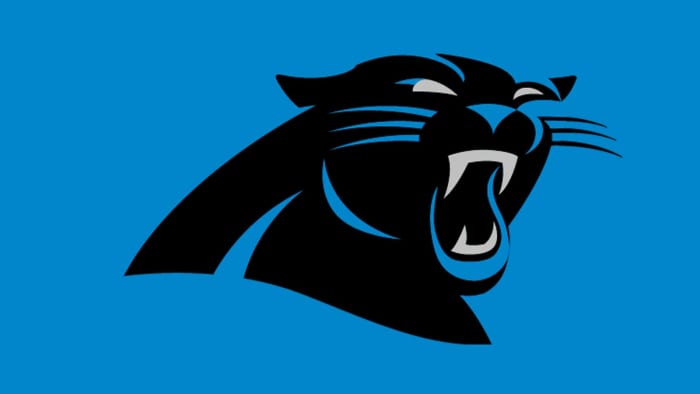Gerald Williams played for the Panthers the first three seasons of the team's existence, from 1995-97.
During that time, the defensive end established a reputation as run-stopping force on the field and as one of the friendliest players off the field and a leader in the locker room.
He now works as a Sheriff's Deputy for Cabarrus County in Concord, N.C.
How did you get into law enforcement?
"It's something that when I was a young man, it was on my list of things I would like to do when I became an adult. I had several things – teaching being one, because both of my parents were teachers – but I also wanted to get into law enforcement because one of my most favorite uncles was a deputy sheriff in Fulton County in Atlanta."
Didn't you also do some teaching after retiring from the NFL?
"I did. I taught for about five years (two in elementary school and three in middle school, when he also helped start up a football program and coached). It was exciting and fun while it lasted, but I got to a point where I thought I needed to make a change."
So now you're an investigator for the Cabarrus County Sheriff's Office?
"We do basically some of the work that detectives would do, but not on the level that they do it. We wear more hats than that, though. I also serve as the liaison between the community and the sheriff's department. So I do that along with investigating cases."
Have you enjoyed the work as much as you thought you would?
"I've immensely enjoyed it. The only regret I have is that I didn't get into the profession when I was younger. I'm close to retirement now, and I'm enjoying it so much I wish I didn't have to retire."
What did you expect, coming to an expansion team in 1995 after spending nine seasons in Pittsburgh and experiencing success with the Steelers?
"To be honest, I didn't expect much at all. The only expectation that I had – a hope, I guess – is that I knew a lot of the guys coming to the Panthers had been with the Steelers, (great friend) Dwight Stone being one of them, and some of the other players I had known from other teams that were coming, like Sam Mills and Brett Maxie from the Saints. So the hope or expectation that I had was that we would form the same kind of bond that we had in Pittsburgh, where we had a brotherhood and we would lay it on the line for each other at all times."
Was it comforting in some ways to know that Dom Capers was the head coach, coming from the same sort of background as former defensive coordinator of the Steelers?
"I think that actually made the transition a lot smoother, a lot easier. I would say 90 percent of the defensive players either played on a team where Dom was there at some point in time or knew of his scheme.
"The first year wasn't bad. We had a chance to get to bond and to get to know one another. Most people don't realize that in the National Football League, you don't win just by showing up on Sundays. It takes some time for each guy to bond and gel and get a feel for how each other plays. That bond that you develop comes together as one, and that's the beauty of team sports – when you get 11 or 22 guys to play together as one."
What was it like to win the division and advance all the way to the NFC Championship in only your second year with the Panthers in 1996?
"The surprise there somewhat was that we were as young as we were on the offensive side. You and I both know that defense is what wins championships. We had something special on the defensive side. We dubbed ourselves early on in that '96 season as the 'Over the Hill Gang.' We had maybe one or two players on that defense who weren't like 33 years old.
"We were a bunch of old guys who had played for Dom at some point in time, and we knew what he expected. So we knew we would have success from the defensive side, from the simple fact that we knew that defense, we had played it before, and we felt like together we could make a success out of it. But on the offensive side, we didn't have many expectations there because they were so young."
So those guys surprised you?
"Yes. We just hoped they could contribute and at least keep us off the field so we could be fresh enough to do what we wanted to do on defense. We felt like if we had any chance early on in '96, it would be because the defense would keep us in games and even find ways to win games for us. The big surprise for us was that the offense matured quickly, and they actually were big contributors to the success we experienced in '96."
Unfortunately, the overall age of the defense caught up to you guys in '97, didn't it?
"It did. By '97, the defense was old and, quite frankly, a lot slower than we were the year before. I know my tank was on empty. And the offense continued to mature, and it was the better half of the team in '97."
But to put in three years like that, it was a pretty good way to finish your career out, wasn't it?
"We had a lot of fun with that 'Over the Hill Gang' defense in '96. We would come into the locker room, and Greg Kragen, Brett Maxie and myself would joke about, 'When are you puttin' in your retirement papers?' We knew we were just playing on borrowed time. We were over the hill, but we were enjoying the fact that we were having the success we were having at the age when most guys were winding it down or being mentors behind younger guys who were starting ahead of them."















